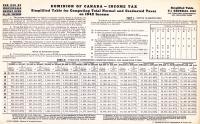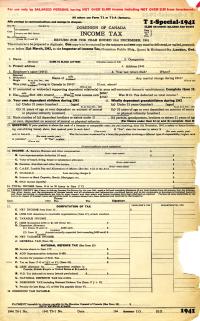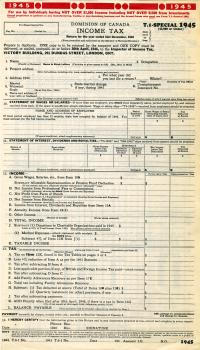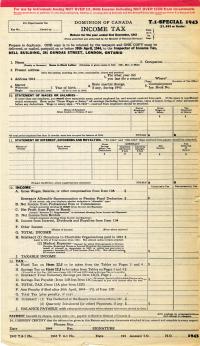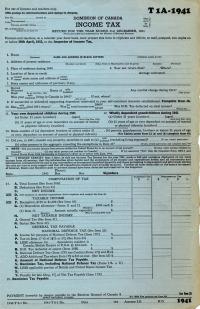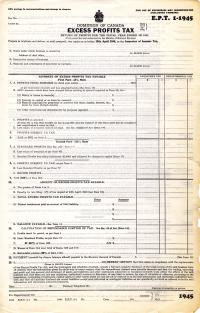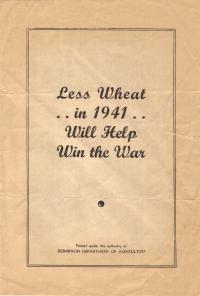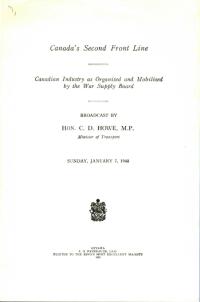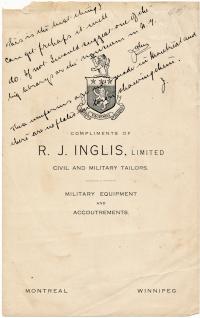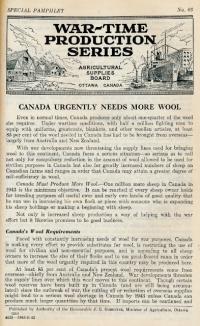Working
Easy tax calculation
This simple table from 1942 indicated base rates of taxation for working Canadians with up to eight dependents.
Basic tax form for London, Ontario
This simplified income tax form was intended for workers in lower income brackets and with limited investments.
Income tax at war's end
The most significant change from previous years was that the buidling housing the London office of the Inspector of Income Tax, once known as the Bell Building, had been renamed the Victory Building.
Four years of wartime income tax
Four years into the Second World War, the federal government had created a tax regime intended to help finance the war without throttling spending and investment.
Income tax for farmers and ranchers
Basic income tax forms have changed little over the years, although the Second World War brought some special new taxes and deductions.
Excess profits tax
During the Second World War, the federal government took a hard line on excess profits, in light of the controveries over profiteering that had swept Canada in the First World War.
Reduce wheat production
During the First World War, many farmers intensified their production of wheat, which created long-term problems for the prairie economy. The government was determined not to repeat that mistake during the Second World War, and encouraged farmers to turn their acreage to other crops.
"Canada's Second Front Line"
In this booklet of a printed speech, C.D. Howe comments on his role as head of the War Supply Board, noting the challenges the board faced in terms of administration and distribution. Of particular note, he stresses the importance of the home front and the role that Canadian industry will play in wartime.
R.J. Inglis, Civil and Military Tailors
R.J. Inglis Limited was a popular tailor and retailer established in 1875 with offices in Montreal, Quebec, and Winnipeg, Manitoba. The firm made, repaired, and altered civilian and military clothing, and also sold and customized military equipment, such as sword scabbards and uniform badges.
Canada needs wool
To help meet demands for woollen articles for service personnel, this bulletin calls for a nation-wide increase in the number of sheep on farms and a decrease in the civilian use of wool.

